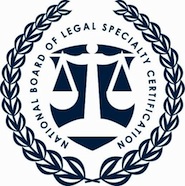Multiple sclerosis is a progressive autoimmune disease that affects the brain and spinal cord/central nervous system and is caused by damage to the myelin sheath, the protective covering that surrounds nerve cells. The respective nerve damage is caused by inflammation, which occurs when the body's own immune cells attack the nervous system. Researchers still have not pinpointed the precise causes of multiple sclerosis, but believe that it may be tied to a virus, genetic defect, or environmental factors. Nerve signals slow down or stop when the nerve covering is damaged.
The disease affects women more frequently than men, with the disorder most commonly presenting and diagnosed between the ages of 20 and 40. Because it is a progressive disease, many patients are desperate to try new treatments as they become available, even if their link to multiple sclerosis is not particularly strong. Now, the Food and Drug Administration has issued an urgent warning related to the use of something known as "liberation therapy."
Liberation therapy is an experimental treatment for multiple sclerosis that has caused deaths, strokes, damage to the treated vein, blood clots, cranial nerve damage, abdominal bleeding, and migration of stents in the body. Since liberation therapy lacks scientific studies supporting the liberation therapy treatment, the FDA cannot recommend its continued use.
"Because there is no reliable evidence from controlled clinical trials that this procedure is effective in treating MS, FDA encourages rigorously-conducted, properly-targeted research to evaluate the relationship between CCSVI and MS," said William Maisel, M.D., M.P.H., chief scientist and deputy director for science in the FDA's Center for Devices and Radiological Health.
A controversial procedure, liberation therapy is used to treat chronic cerebrospinal venous insufficiency (CCSVI) -- a narrowing of veins in the neck and chest -- believed by some to cause multiple sclerosis or worsen the disease. It is imperative for Maryland multiple sclerosis patients to know that a clear and conclusive link between CCSVI and multiple sclerosis has yet to be established: to date, no reliable evidence from controlled clinical trials exists. According to Maryland medical injury attorneys, physicians performing this uncertain procedure did so at dangerous risk to their patients, who, hopeful that a new therapy might prove effective, may never have discussed the potential risks and benefits of a potential procedure.
If you or someone you know has been injured, or worse, by liberation therapy to treat multiple sclerosis, you may have a legal claim for monetary compensation, including hospital bills, therapy, pain and suffering, and loss of income and wages both now and in the future. For more information, contact a multiple sclerosis treatment injury attorney in Maryland as soon as possible.
Written by Phil Balbo, staff writer at Price Benowitz LLP. For more information on personal injury cases, please contact the Virginia personal injury lawyers of Price Benowitz LLP for a free consultation. Please visit the Multiple Sclerosis Society website for more on possible multiple sclerosis treatments.















